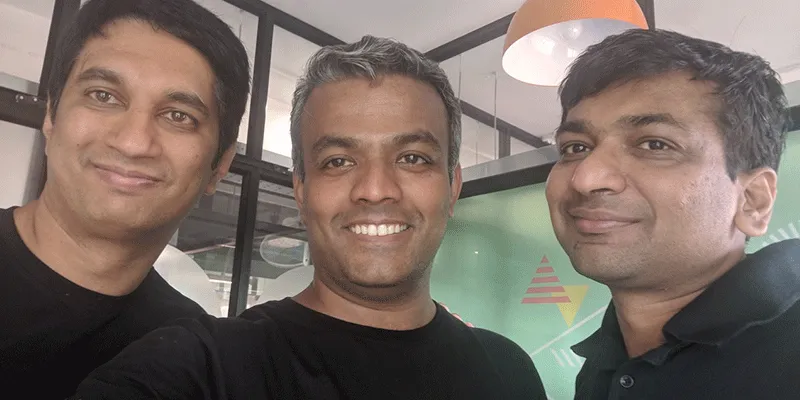Around 43 per cent Indians say they shopped online more than ever during the pandemic, according to a survey by multinational research firm, Ipsos. Online shopping, which has been gaining in popularity in India, received what may be called a booster shot, thanks to the coronavirus crisis, as people avoided physical contact as much as possible.
While many online shopping platforms have adopted a voice assistant for the shopping ease of customers, it’s not a seamless experience on most sites or apps.
This is primarily due to the fact that most ecommerce players have adopted the most basic level of voice-to-text service available out there, says Slang Labs Co-Founder and CEO, Kumar Rangarajan. To plug this problem and ensure a hassle-free and seamless voice experience for customers while shopping online, the Bengaluru-based startup has launched ‘Slang CONVA’, which it says is “the world’s first voice assistants as a service platform”. Although it is a completely B2B (business-to-business) product, it has a direct connect with the end consumer, as it is instrumental in creating the final user experience via voice.

“Slang CONVA allows you to add a sophisticated and full-featured voice assistant to your ecommerce app in less than 30 minutes. These multilingual voice assistants sit inside your ecommerce app and work as per your business logic,” explains Kumar.
The product promises to drastically simplify the process of adding in-app voice assistants to a matter of minutes from the six months or more that is usually required.
It claims to have “a light-weight SDK (software development kit), out-of-box well-designed user experiences, easy configurations and a low-code integration that can be done by Android and web developers in less than 30 minutes.”
Founded by Kumar Rangarajan, Giridhar Murthy and Satish Chandra Gupta, Slang Labs has been working on its voice technology for over three years. This is the second iteration of the product. The previous avatar, a custom voice solution which is not out-of-box, is still available.
Kumar and Giridhar had earlier co-founded Little Eye Labs, which was acquired by Facebook in 2014, the social media giant’s first acquisition in India.
It built performance analysis and monitoring tools for mobile Android apps. After a three-year stint at the Facebook headquarters in California, wanting to start up again, the duo came back to India and launched Slang Labs with Satish, who held senior roles at Ola, Amazon, IBM and Microsoft.
How the seeds of the product were sown
Slang Labs saw that many brands wanted to add multilingual voice interactions to their apps, but faced certain barriers. Co-Founder and CTO, Giridhar lists them out, “Huge investment needed to even run pilots. Many months of engineering effort to build reasonably good experiences. Generic voice assistants like Google Assistant and Alexa did not provide sufficient specialisation that would make them useful inside a brand’s app. Vernacular language understanding and natural language processing (NLP) is a very complex thing to solve for brands.”

Slang Labs co-founders, Giridhar Murthy, Kumar Rangarajan, Satish Chandra Gupta (L-R)
How is it different
To be sure, there are several other players in India such as Mihup, Gnani.ai, Vernacular.ai and Jiny.io operating in the voice assistants space. Tech giants such as Google and Amazon’s Alexa also offer voice assistants.
However, most players in the voice space in India are in the customer service play, Kumar points out, while adding that Jiny.io is the closest that comes to Slang. “The main difference between us is that, they look at voice as an output mechanism, like a voice-guided mechanism to learn the UI (user interface), while we are focused both on input and output,” Kumar explains. He adds that Slang Labs is more in the transaction space, like Google and Alexa. Globally, there are also companies such as Alan AI and Houndify that offer conversational voice platforms.

According to Slang Labs Co-Founder and Chief Scientist, Satish, there are some distinct advantages the CONVA platform offers for ecommerce apps, other than quick adoption. “Slang voice assistants are pre–trained and provide out-of-the-box support for various domains such as retail e-commerce. They are multilingual and multimodal out-of-the-box. Your users can use voice and touch interchangeably, providing the best of both experiences. Your app can continue to be in English and yet allow your users to talk to it in other languages,” he elaborates.
Voice shopping has started going mainstream. Last year, homegrown ecommerce giant Flipkart launched its multilingual voice assistant, which allows its customers to search and shop by just talking to the app.
The launch came two years after Flipkart acquired Liv.ai, one of the early voice players in India. Kumar proudly says that what took the ecommerce major two years to build, can now effectively be done in under half an hour with CONVA. “Flipkart worked on improving the platform they acquired for a couple of years. Instead of having to invest years, now it’s available out-of-the-box,” he says. Last year Amazon too rolled out Alexa integration into the Amazon app in India; it had been available in the US for a while.
Let’s talk money, honey
Slang believes its model lifts another barrier for businesses interested in trying out voice assistants on their platforms — money.
The startup does not charge any upfront integration costs or annual fees and promises that there are no hidden charges.
“Every voice user gets unlimited voice interactions every month, but you get billed a flat rate per unique voice user in a month. This essentially means every month, only that month’s unique voice users are considered for your billing purposes, not historical users,” says Kumar. The charges are in the Rs 5-10 range per user with a cap of Rs 5 lakh per month, beyond which the startup won’t charge its client, even if the number of users breaches that threshold.

Slang has built ready to adopt voice assistants for the grocery, pharma and fashion verticals; it is currently in the process of building for travel, insurance and agritech.
It has clients such as P&G, Udaan, Big Basket, Trainman, SpiceJet, and Shine. While some have rolled out full-scale, others are in a pilot stage. “We expect to see a Slang voice assistant in every ecommerce app in the next two years, benefiting millions of users with a simple interface,” Kumar says.
While voice adoption is definitely on the rise, what could potentially prove to be a challenge for ecommerce players is that many consumers seem to have privacy apprehensions around allowing voice interactivity in apps.
According to a report by WATConsult, released last year, “46 per cent of the users feel that voice assistants on their devices are always recording and listening. Users are conscious about their privacy and feel that the tech companies are not safe. They do not feel secure in terms of their data being used elsewhere.”

However, the report also stated that 76 per cent users are familiar with speech and voice recognition technology, showing increasing awareness. It highlighted that a majority of users have considered product/service recommendations from a voice assistant and shopped online.








![Read more about the article [YS Exclusive] Bioethanol startup MicroBite raises $1.5M in Pre-Series A from Vijay Madduri, others](https://blog.digitalsevaa.com/wp-content/uploads/2022/03/microbite-1648566383279-300x150.png)
